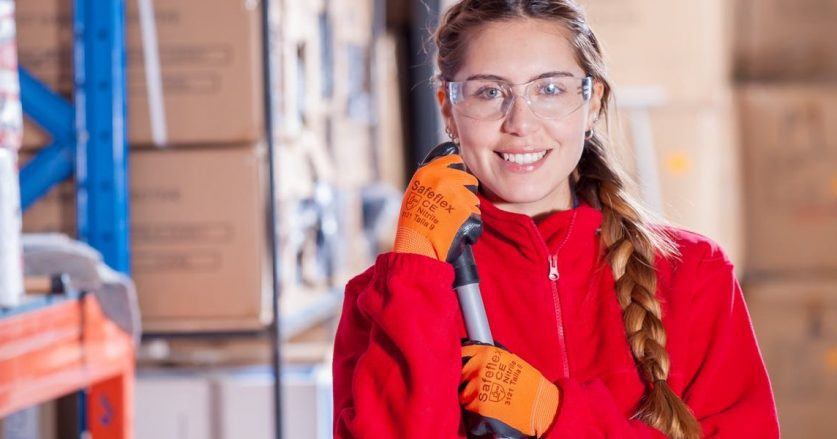Call Us Now1-800-414-2174


First of all, allow me to state the obvious. It is illegal to deny a job to anyone based on gender. Women can and do play invaluable and innovative roles in the job market, including labor intensive jobs. Despite a growing number of women in labor intensive jobs such as construction, it largely remains a male-dominated industry. For example, women comprise only about 9% of the construction workforce. This likely reflects barriers women face in pursuing such work: the perception that it is “men’s work” and women are “too weak”; less encouragement for girls to pursue math and science in school; unlikeliness of exposure to construction tools during childhood; failure to inform young women of jobs that exist in the trades; discriminatory recruitment practices; and ill-fitting construction gear designed for men, among others.
In 2011, Mach Mining was a company that made the ill-fated decision not to hire women for labor intensive mining operations and found itself in hot water. EEOC filed a lawsuit against Mach Mining alleging that women were effectively excluded from underground mine work and other coal production jobs (according to a consent decree filed Jan. 25 with the U.S. District Court for the Southern District of Illinois). Mach Mining was alleged to have excluded women from “non-office mining jobs” by only hiring applicants who were referred by a current employee (Male), a practice that created disparate impact based on sex according to EEOC. The result? – a $4.25 million-dollar settlement for sex bias in hiring.
Subsequent to this ruling against Mach Mining, WorkSaver Systems was contracted by labor attorneys representing Mach Mining to validate their essential job physical demands and create job-specific EEOC compliant fitness for duty testing. This project, under the scrutiny of EEOC, was completed by WorkSaver very successfully and Mach Mining, now Foresight Energy, is properly testing and hiring women who are qualified for the labor-intensive mining jobs.
The costly Mach Mining case clearly demonstrates that when there is concern that women can safely perform more labor intensive traditional male dominated jobs, employers would be wise to consider having the essential physical demands of their jobs validated, followed by the creation of job-specific, ADA compliant fitness for duty (FFD) testing.
An FFD test that is designed and administered correctly and in compliance with the EEOC and all federal laws will fairly and objectively determine whether or not a female applicant has the physical abilities to safely perform the job. If not, the job offer can be legally withdrawn unless the female applicant has a qualified disability that requires an interactive accommodation review. If no reasonable accommodations are available in such cases, the job can be legally withdrawn.
The inclusion of more women in labor intensive industries is good business. Studies show that by increasing gender diversity, profitability also increases. Labor intensive businesses are taking notice and looking for ways to recruit and retain women in the workforce.
But apprenticeships, the traditional stepping stone to break into the construction industry, are still hard for women to obtain. To help break down some of the barriers for women, many states and local governments have developed women-only pre-apprenticeship programs to provide them with the skills necessary to obtain apprenticeships and eventually enter the workforce. These pre-apprenticeship programs provide career opportunities and continued mentoring and support from other successful women in the industry. The curriculums are developed with input from trade unions and are intended to provide a supportive environment where women feel comfortable learning and asking questions. The programs have seen remarkable success, already showing an increase in gender and racial diversity in apprenticeship programs and, ultimately, the construction field in general.
Companies and businesses in the labor-intensive fields, such as the construction field, can also implement specific changes to attract and retain women. Examples include developing their own pre-apprenticeship and apprenticeship programs geared towards women, boasting an inclusive and diverse work culture with equal value to both genders, creating a diversity council aimed at increasing the diversity and inclusivity in the culture, involving females in recruiting of new employees, encouraging women to take leadership roles, and enacting family-friendly work policies, such as flex work schedules and aid in obtaining child care. Companies that are committed to diversifying their work force and involving women in all levels of the operation will most certainly reap the reward.
Fitness for duty testing as offered by WorkSaver Systems is certainly one valid way to match a woman to a labor-intensive job that may have in the past deemed unattainable for women.
For more information contact Dr. Richard Bunch or Trevor Bardarson at WorkSaver Systems, (800) 414-2174.
Additional References:
EEOC v. Mach Mining, LLC , S.D. Ill., No. 11-cv-00879, consent decree filed 1/25/17
Johanna G. Zelman, Allan M. Bahn, Michel Bayonne, Danielle Van Katwyk and Jenna M. Goldman – Ford & Harrison LLP
WorkSaver Employee Testing Systems 478 Corporate Dr. Houma, LA 70360
![]()